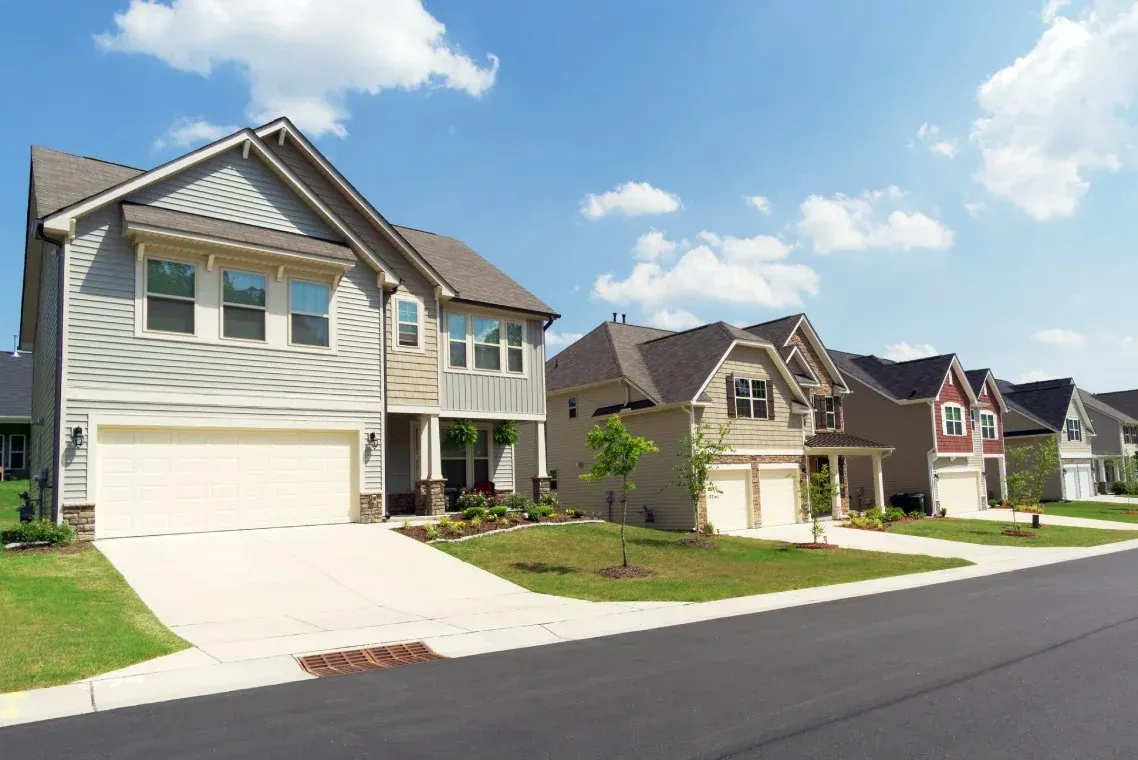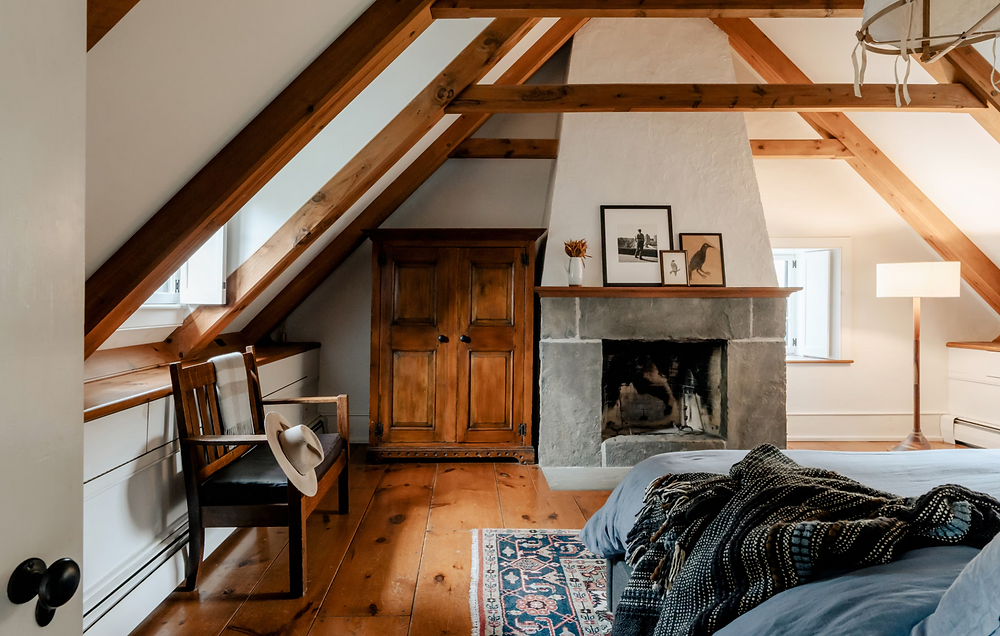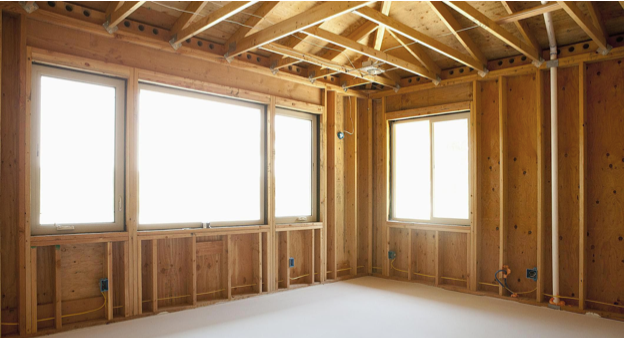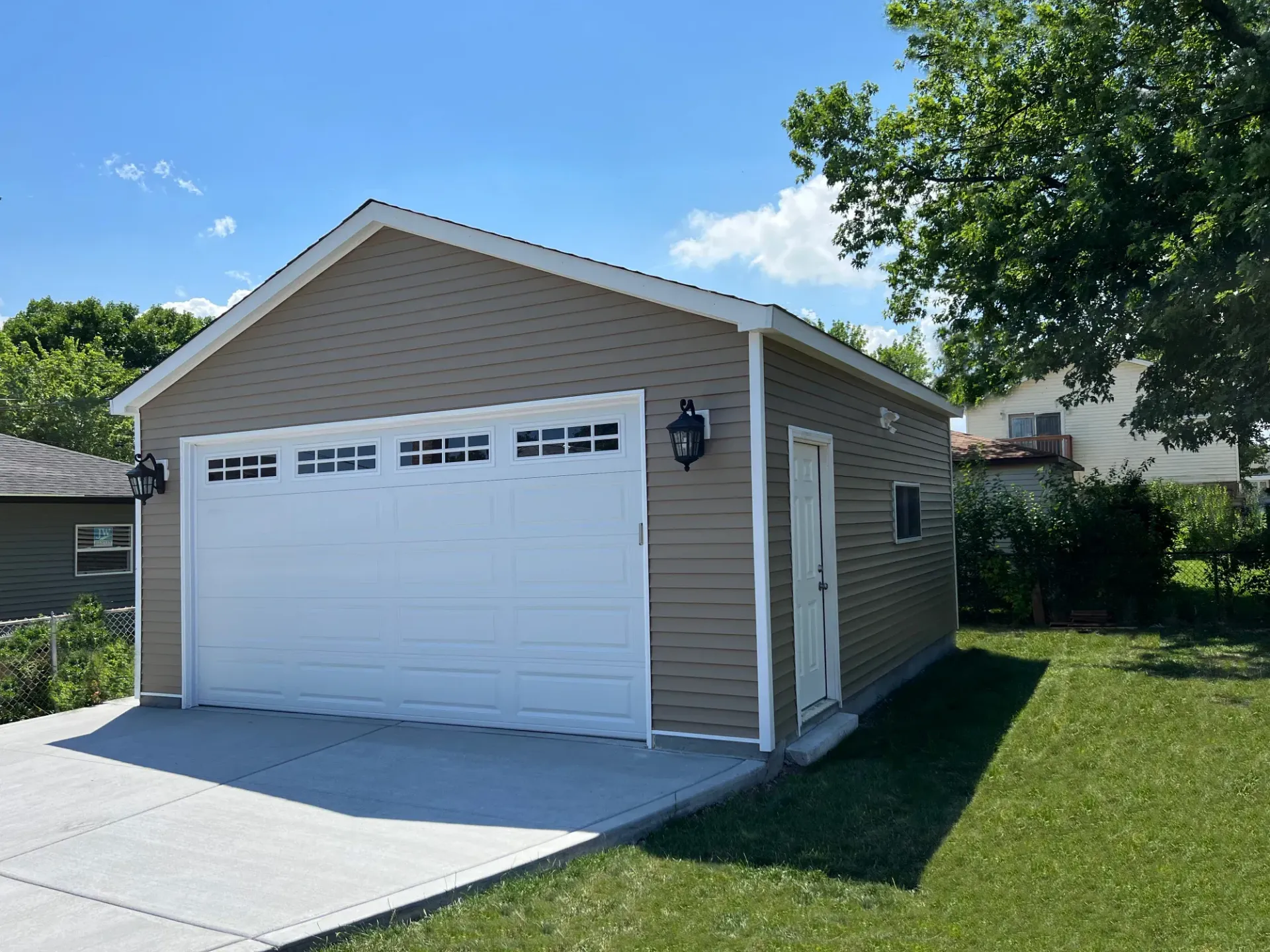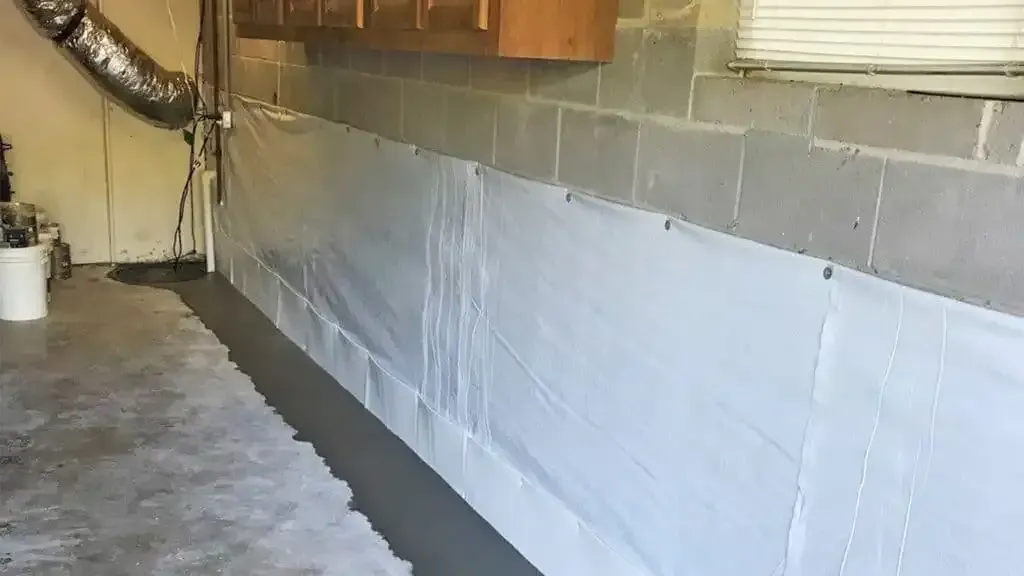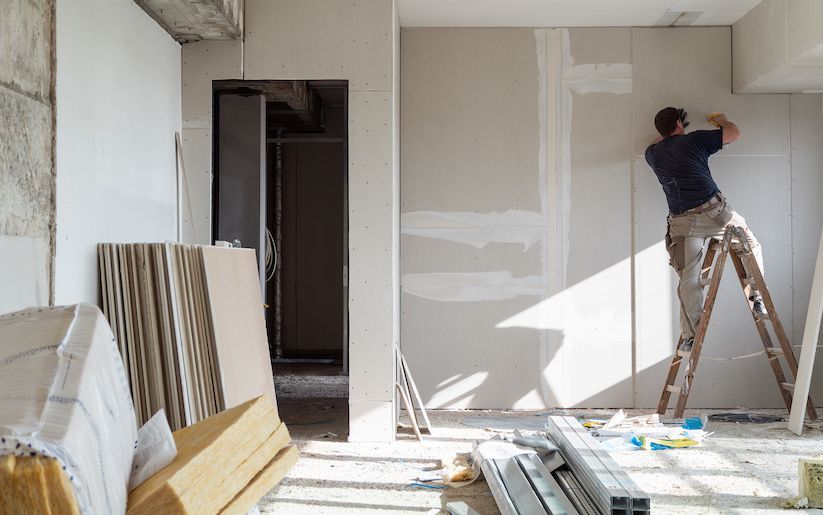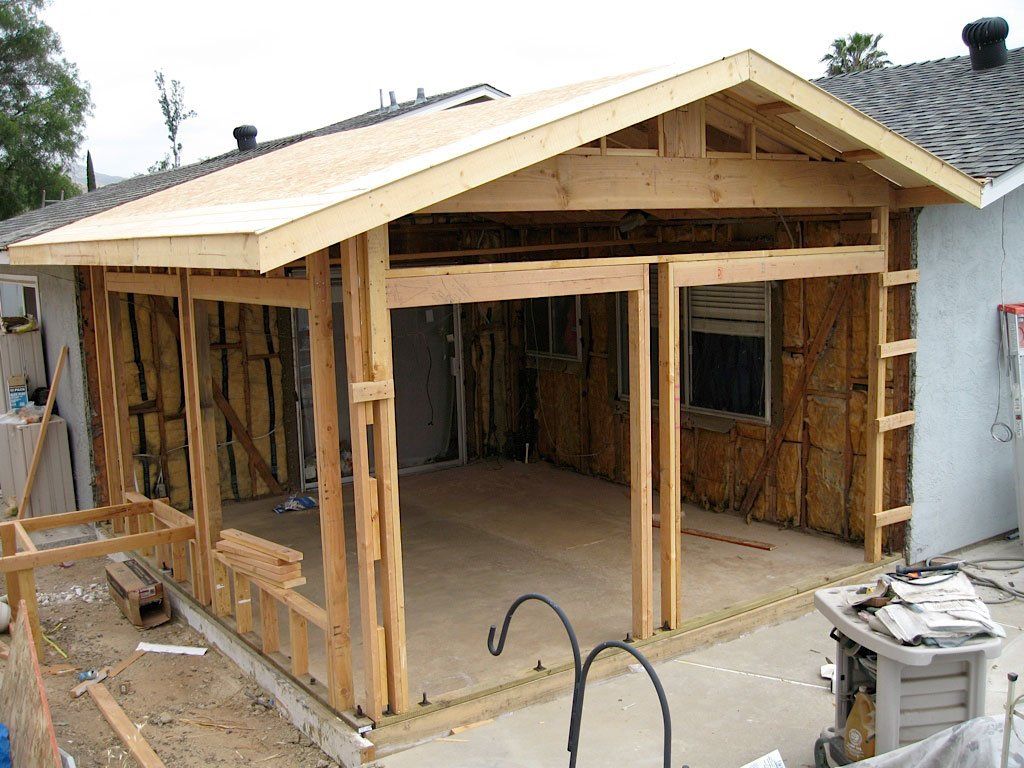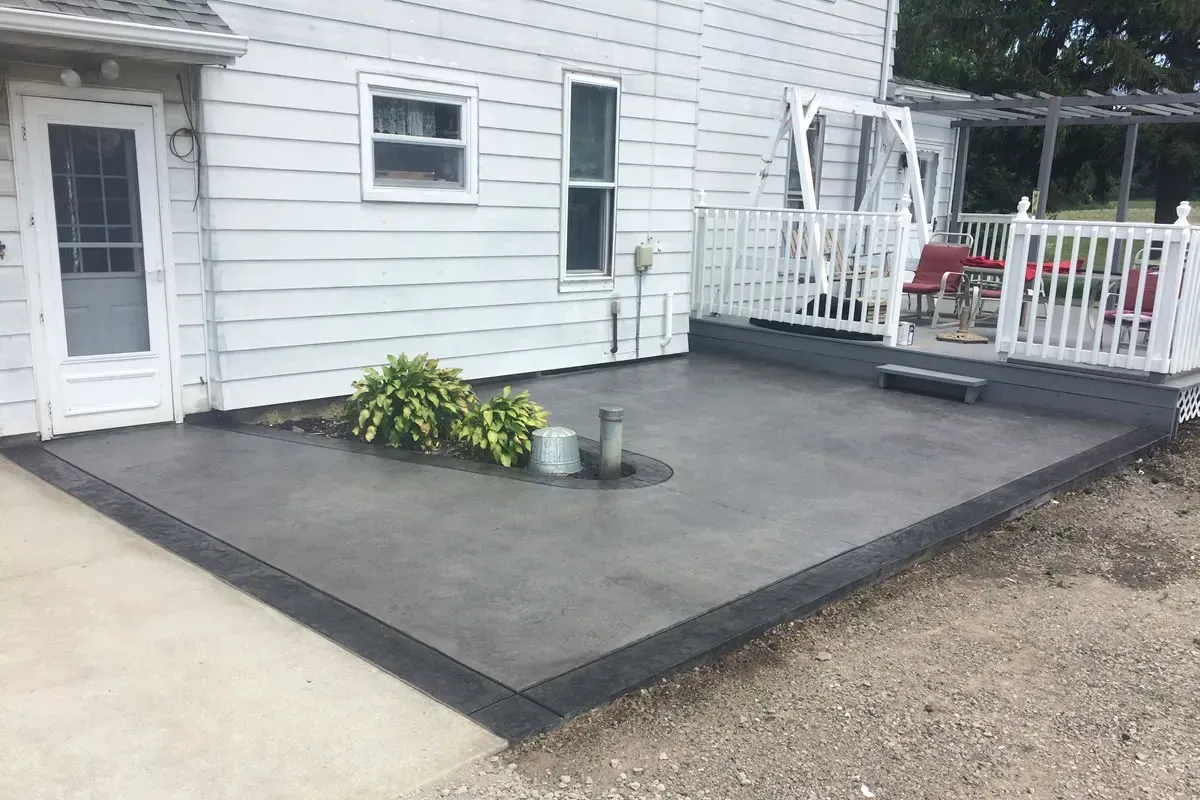Composite vs. Wood Decks: What’s Best for Rhode Island?
For Rhode Island homeowners, composite decks are generally the better choice due to superior resistance to salt air corrosion, minimal maintenance requirements, and longevity in coastal conditions. However, wood decks offer lower upfront costs and traditional aesthetics that many prefer. The best choice depends on your budget, maintenance preferences, and specific location within Rhode Island.
Why Rhode Island's Climate Matters for Deck Selection
Coastal Environment Challenges
Rhode Island's position on the Atlantic Ocean creates unique deck challenges that heavily favor composite materials:
Salt Air Exposure
- Accelerates wood decay and fastener corrosion
- Requires marine-grade treatments and hardware
- Composite materials are unaffected by salt air
- Coastal areas like Newport, Westerly, and Narragansett see the most impact
High Humidity Levels
- Average humidity of 70-80% year-round
- Promotes mold, mildew, and rot in wood decks
- Composite decks resist moisture-related problems
- Particularly problematic in areas like Block Island and coastal Warwick
Freeze-Thaw Cycles
- Rhode Island averages 90-120 freeze-thaw cycles annually
- Causes wood expansion, contraction, and cracking
- Composite materials have superior dimensional stability
- More severe in inland areas like Cumberland and Woonsocket
Composite Decks: Pros and Cons for Rhode Island
Advantages in Rhode Island's Climate
Superior Durability
- 25-30 year lifespan in coastal conditions
- No rot, decay, or insect damage
- Fade-resistant colors maintain appearance
- Warranty protection typically 20-25 years
Minimal Maintenance Requirements
- Annual power washing is sufficient
- No staining, sealing, or sanding needed
- Saves 10-15 hours of maintenance per year
- Ideal for busy Rhode Island professionals
Salt Air Resistance
- Unaffected by coastal salt spray
- No corrosion issues with quality fasteners
- Maintains structural integrity near ocean
- Perfect for waterfront properties in Newport County
Weather Resilience
- Excellent performance in freeze-thaw cycles
- Minimal expansion and contraction
- Resistant to moisture absorption
- Handles Rhode Island's variable weather patterns
Composite Deck Disadvantages
Higher Initial Investment
- 2-3 times more expensive than pressure-treated wood
- Total project cost: $4,000-$8,000 for average 200 sq ft deck
- Longer payback period (8-12 years)
- May require financing for larger projects
Limited Aesthetic Options
- Cannot be stained or painted to change color
- Artificial appearance may not suit all home styles
- Some products have repetitive grain patterns
- May not complement historic Rhode Island architecture
Heat Retention
- Can become hot in direct summer sun
- Particularly noticeable on south-facing decks
- Light colors recommended for maximum sun exposure
- Less comfortable for bare feet than wood
Wood Decks: Pros and Cons for Rhode Island
Advantages of Wood Decking
Lower Upfront Costs
- Pressure-treated lumber: $8-12 per square foot installed
- Cedar or redwood: $12-18 per square foot installed
- More accessible for budget-conscious homeowners
- Allows for larger deck sizes within same budget
Natural Beauty and Customization
- Authentic wood grain and texture
- Can be stained any color to match home
- Complements Rhode Island's colonial and Victorian architecture
- Ages gracefully with proper maintenance
Easy Repairs and Modifications
- Individual boards easily replaced
- Standard carpentry tools and skills sufficient
- Local lumber yards stock replacement materials
- DIY-friendly for handy homeowners
Environmental Considerations
- Responsibly harvested wood is renewable resource
- Lower carbon footprint in manufacturing
- Biodegradable at end of life
- Supports sustainable forestry practices
Wood Deck Disadvantages in Rhode Island
High Maintenance Requirements
- Annual cleaning, staining, and sealing needed
- Costs $300-600 annually for professional maintenance
- 10-15 hours of homeowner time per year
- Skipping maintenance voids warranty and shortens lifespan
Salt Air Vulnerability
- Accelerated decay in coastal areas
- Requires marine-grade stains and sealers
- Fasteners must be stainless steel or hot-dipped galvanized
- Frequent maintenance needed near ocean
Shorter Lifespan
- 10-15 years typical in Rhode Island's climate
- Coastal exposure can reduce to 8-12 years
- Replacement costs every decade
- Higher long-term total cost of ownership
Weather-Related Issues
- Warping and cupping from humidity changes
- Splitting from freeze-thaw cycles
- Mold and mildew growth in damp conditions
- Requires winter preparation and maintenance
Best Composite Deck Brands for Rhode Island
Top Performers in Coastal Conditions
Trex Transcend and Select
- Excellent fade and stain resistance
- 25-year warranty coverage
- Heat-resistant formulations available
- Widely available from Rhode Island suppliers
TimberTech AZEK
- Premium PVC-based composite
- Superior moisture resistance
- Excellent for waterfront properties
- Higher cost but maximum durability
Fiberon Horizon and Paramount
- Good value for performance
- Attractive color options
- Solid warranty coverage
- Available through local dealers
Installation Considerations
- Use stainless steel fasteners for coastal areas
- Proper ventilation essential for moisture management
- Professional installation recommended for warranty compliance
- Consider hidden fastener systems for clean appearance
Best Wood Species for Rhode Island Decks
Pressure-Treated Southern Pine
Advantages
- Most affordable option ($8-12 per sq ft)
- Readily available from local suppliers
- Good structural properties
- Accepts stain well when properly prepared
Considerations
- Requires annual maintenance
- Can warp and twist if not properly dried
- Green tint fades over time
- May contain chemicals (though safe when used properly)
Western Red Cedar
Advantages
- Natural rot and insect resistance
- Beautiful natural color and grain
- Pleasant aroma
- Excellent for coastal applications
Considerations
- Higher cost ($12-18 per sq ft)
- Softer wood shows wear more readily
- Requires regular maintenance to prevent graying
- Limited local availability
Tropical Hardwoods (Ipe, Mahogany)
Advantages
- Exceptional durability (20-25 years)
- Natural resistance to rot and insects
- Beautiful grain patterns
- Excellent for high-end applications
Considerations
- Very expensive ($20-30 per sq ft)
- Requires specialized tools and experience
- Limited local suppliers
- Environmental concerns with some species
Regional Considerations Across Rhode Island
Coastal Areas (Newport, Westerly, Narragansett)
Composite Strongly Recommended
- Extreme salt air exposure
- Higher humidity levels
- Frequent storm exposure
- Premium aesthetics important for property values
If Choosing Wood:
- Marine-grade stains and sealers essential
- Stainless steel fasteners required
- Increased maintenance schedule needed
- Consider tropical hardwoods for longevity
Urban Areas (Providence, Warwick, Cranston)
Composite Advantages
- Low maintenance suits busy lifestyles
- Air pollution resistance
- Consistent appearance important
- Higher property values justify investment
Wood Considerations
- Pollution accelerates finish deterioration
- Limited space for maintenance activities
- Noise restrictions may limit power tool use
- Professional maintenance often necessary
Inland Areas (Cumberland, West Warwick, Woonsocket)
More Balanced Choice
- Less salt air exposure favors wood
- Lower humidity reduces decay risk
- Cost savings more significant
- DIY maintenance more feasible
Climate Factors
- Greater temperature extremes
- Higher snow loads
- More freeze-thaw cycles
- Seasonal maintenance windows
Cost Analysis: 10-Year Total Ownership
Composite Deck (200 sq ft example)
Initial Investment: $5,000-$7,000
- Materials: $3,000-$4,000
- Installation: $2,000-$3,000
- Permits and misc.: $200-$300
10-Year Maintenance: $500-$800
- Annual cleaning: $50-$80 per year
- Minor repairs: $100-$200 total
Total 10-Year Cost: $5,500-$7,800
Wood Deck (200 sq ft example)
Initial Investment: $2,500-$4,000
- Materials: $1,500-$2,500
- Installation: $1,000-$1,500
- Permits and misc.: $200-$300
10-Year Maintenance: $3,000-$5,000
- Annual staining/sealing: $300-$500 per year
- Board replacement: $500-$1,000
- Fastener replacement: $200-$400
Total 10-Year Cost: $5,500-$9,000
Environmental Impact Comparison
Composite Decks
Pros:
- Many made from recycled materials
- Long lifespan reduces replacement frequency
- No chemical treatments needed during use
Cons:
- Higher energy use in manufacturing
- Not biodegradable at end of life
- Some products contain PVC
Wood Decks
Pros:
- Renewable resource when responsibly harvested
- Lower manufacturing energy requirements
- Biodegradable at end of life
- Carbon sequestration during growth
Cons:
- Chemical treatments for pressure-treated lumber
- More frequent replacement increases resource use
- Transportation costs for non-local species
Decision Framework for Rhode Island Homeowners
Choose Composite If:
- Your property is within 2 miles of the ocean
- You prefer minimal maintenance
- Long-term cost savings are important
- You plan to stay in your home 10+ years
- Professional appearance is priority
Choose Wood If:
- Budget is primary concern
- You enjoy DIY maintenance projects
- Traditional aesthetics are important
- You're comfortable with annual maintenance
- Your property is inland with less salt exposure
Hybrid Approach Considerations
- Composite decking with wood railing
- Wood structure with composite boards
- Different materials for different deck levels
- Phase replacement over time
Installation Timeline and Considerations
Composite Deck Installation
Timeline: 3-5 days for typical deck
- Requires specialized tools and techniques
- Hidden fastener systems take longer
- Professional installation recommended
- Limited seasonal installation window
Preparation Requirements
- Structural analysis for increased load
- Proper ventilation planning
- Color selection and planning
- Permit acquisition
Wood Deck Installation
Timeline: 2-4 days for typical deck
- Standard carpentry tools sufficient
- More flexibility in installation methods
- DIY installation possible
- Longer installation season
Preparation Requirements
- Lumber selection and grading
- Proper seasoning time
- Fastener selection for conditions
- Maintenance plan development
Frequently Asked Questions
Q: Which lasts longer in Rhode Island's climate - composite or wood? A: Composite decks typically last 25-30 years in Rhode Island, while wood decks last 10-15 years due to salt air and humidity.
Q: Are composite decks worth the extra cost in Rhode Island? A: Yes, especially in coastal areas. The 10-year total ownership cost is often lower due to minimal maintenance requirements.
Q: Can I install composite decking myself? A: While possible, professional installation is recommended for warranty compliance and proper handling of specialized fasteners.
Q: Which is better for resale value in Rhode Island? A: Both add value, but composite decks often provide better ROI due to their "like-new" appearance and low maintenance appeal.
Q: Do composite decks get too hot in Rhode Island summers? A: They can get warm, but proper color selection and ventilation minimize this issue. Light colors stay cooler.
Q: What's the best time to build a deck in Rhode Island? A: Late spring through early fall (May-October) provides optimal conditions for both composite and wood installation.
Making the Final Decision
Assessment Questions
- What's your budget range? (Include 10-year maintenance costs)
- How close are you to the ocean? (Salt air exposure level)
- Do you enjoy home maintenance projects? (Time and skill availability)
- How long do you plan to stay in your home? (Investment timeline)
- What's your home's architectural style? (Aesthetic compatibility)
Professional Consultation Benefits
- Site-specific recommendations
- Local climate expertise
- Code compliance guidance
- Warranty protection
- Quality installation guarantee
Ready to build your perfect deck in Rhode Island? Rockhouse Construction specializes in both composite and wood deck installation throughout the Ocean State. Our team understands the unique challenges of Rhode Island's coastal climate and can help you choose the perfect material for your location, budget, and lifestyle. We use only marine-grade fasteners and materials designed for coastal conditions, ensuring your deck will withstand whatever New England weather brings. Contact us today for a free consultation and personalized recommendation for your Rhode Island home.
